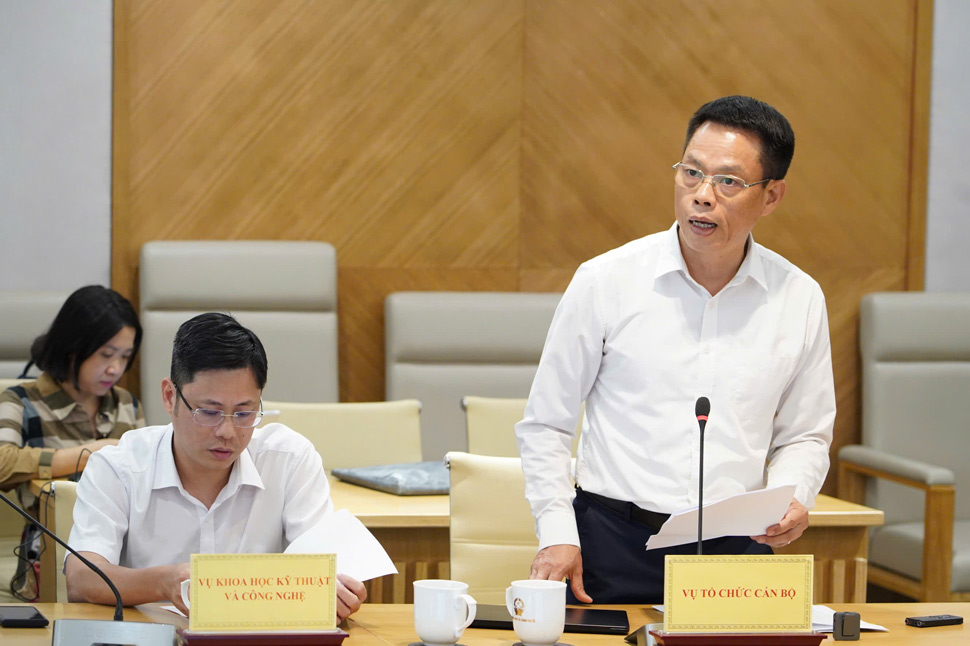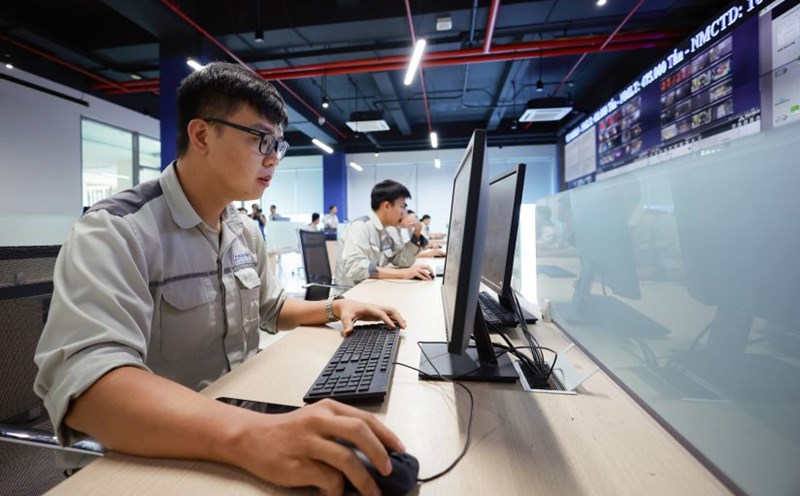The new mechanism to attract talent is not a "privilege" but a minimum condition
At the regular press conference in July organized by the Ministry of Science and Technology on August 5, Mr. Mai Anh Hong - Deputy Head of the Organization of Cadres affirmed: "Building mechanisms to overcome the salary ceiling, support housing and create a modern working environment for experts should not be considered a privilege, but a minimum condition to attract and retain talent in the fields of science - technology, innovation and digital transformation".

According to the Deputy Director of the Department of Organization and Personnel (Ministry of Science and Technology), without breakthrough compensation policies, it will be difficult for Vietnam to retain talented people, and it will be even more difficult to convince Vietnamese experts abroad to return to work. "No one leaves a high-income position, a modern research environment to return home with only a basic salary and poor conditions," said Mr. Hong.
For that reason, the Law on Science, Technology and Innovation and the Law on Digital Technology Industry in 2025 have paved the way for the application of flexible mechanisms. Notably, it is necessary to allow the payment of salary according to agreement (rather than being bound by the state framework); provide housing, and give more autonomy to public research organizations. Non-financial policies such as sharing benefits from research results, risk acceptance and international cooperation will also be expanded.
The Ministry of Science and Technology aims to attract at least 100 high-tech experts by August 2025, aiming to form a network of talents throughout 2030 - 2050. This is part of the national strategy on developing high-quality resources, which will be submitted to the Prime Minister in September.
Creating a modern research environment, connecting businesses and scientists
In parallel with the remuneration policy, the Ministry of Science and Technology determined that it is necessary to build a dynamic research environment that is internationalally competitive. The immediate goal is to upgrade laboratory infrastructure, invest in high-tech parks, innovation centers and a scientific startup ecosystem. At the same time, promote cooperation between businesses and institutes to apply research results to practice.
The Prime Minister has also issued a list of strategic technologies and products from June 2025. This August, the Ministry of Science and Technology will submit to the Prime Minister 3 first priority technology products for implementation as samples. On that basis, Vietnam will issue a project to develop 11 strategic technology groups by 2035, as a foundation for key industries and national digital transformation.

On the other hand, the evaluation mechanism will also be innovated, shifting from "profile, qualifications" to "realistic efficiency and commercialization capability". cumbersome administrative procedures in research activities, topic approval, funding allocation, etc. will be cut, helping scientists focus on creativity.
With strong steps from policy to infrastructure, the Ministry of Science and Technology affirmed: it is time to look back at the role of scientific and technological talents not only in the aspect of dedication, but also to be invested as a strategic resource of the country.











